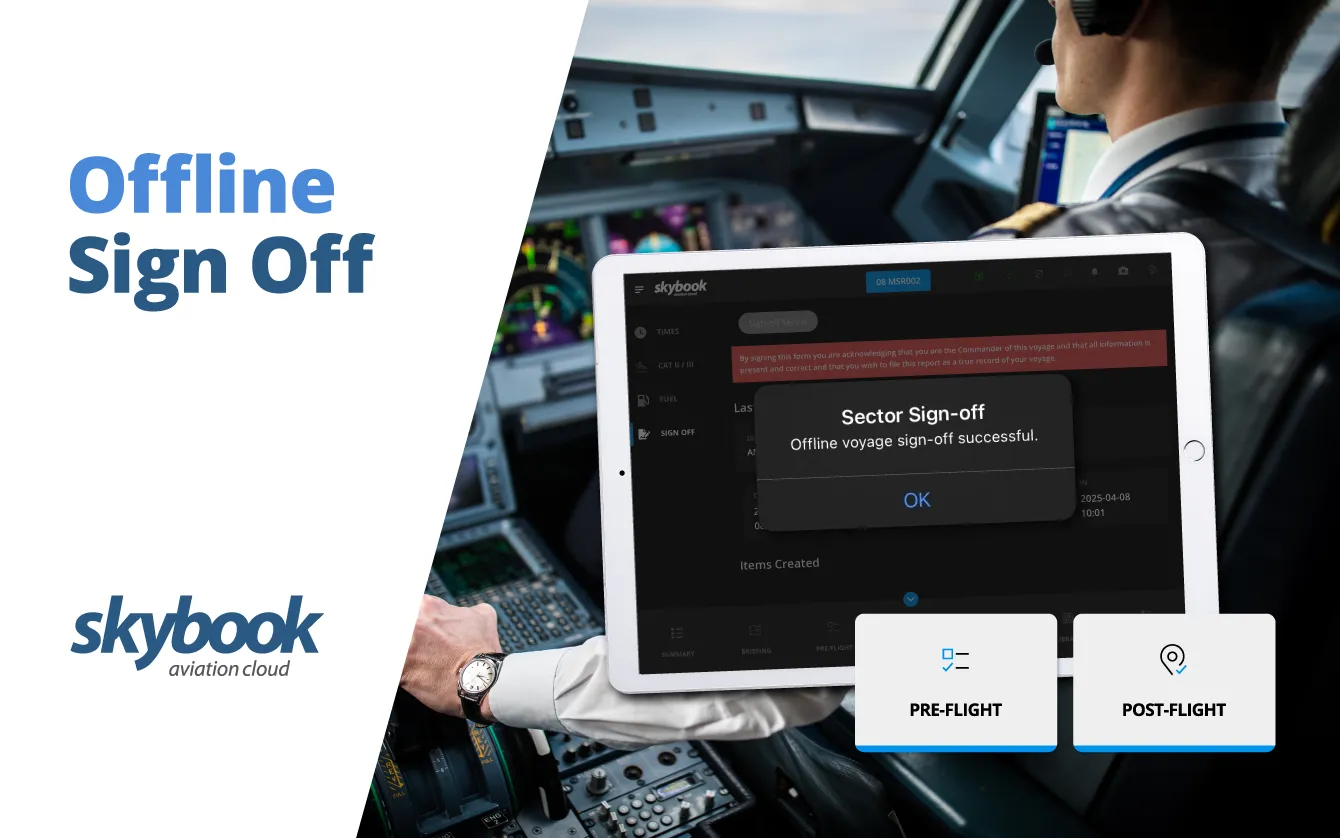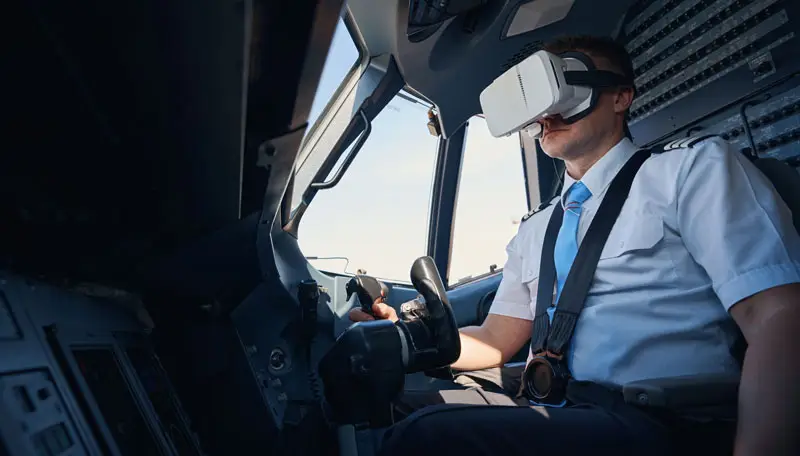
Why offline sign off matters on pilots EFB
The future of an Electronic Flight Bag (EFB) has huge potential for further innovations to providing efficiencies and flight safety within the flight deck and flight operations.
Here are some observations and insights of what could shape the future of EFB:
With AI technology quickly becoming part of our everyday lives, it is only a matter of time that the future of electronic flight bags will incorporate artificial intelligence and machine learning.
AI on an EFB could provide intelligent recommendations, predictive analysis, and automation features to assist pilots in decision-making and further streamlining flight operations.
AI-powered voice recognition and language processing could enable pilots to interact with EFBs using spoken commands, allowing for hands-free operation and enhanced user experience.
An EFB AI personalized assistance could potentially learn a pilots past actions and preferences. Including features such as customized checklists, adaptive user interfaces that are tailored to individual pilot profiles.
EFB devices in the future will likely continue to improve connectivity options, allowing seamless integration with other onboard systems and ground-based networks; as tablet devices develop in speed, power and features this will only enhance this more.
Enhanced connectivity will enable real-time data sharing between aircraft, airlines, air traffic control, and maintenance teams. Leading to collaborative decision-making and improving operational efficiency.
Many EFBs integrate with charting apps and other software, enabling seamless data transfer that saves time and eliminates manual data entry for pilots. As companies increasingly collaborate to enhance user experiences, these integrations are likely to become even more widespread.

The future of EFBs might involve integrating more with AR and VR capabilities which could change the way flight crew interact with information.
Augmented reality can provide pilots with contextual data and visual aids, improving situational awareness and reducing workload. Virtual reality flight simulations are being used to enhance pilot training programs, allowing pilots to practice various scenarios in a realistic virtual environment and training to use EFBs.

Future EFBs will likely integrate more sophisticated weather and traffic monitoring capabilities as these technologies continue to develop and improve.
By utilizing advanced weather radar systems and data analytics, future EFBs could provide pilots with even more accurate real-time weather updates, turbulence forecasts, and optimized routing options to enhance flight safety and efficiency.
AI-driven systems could provide pilots with real-time insights and recommendations based on current flight conditions, airspace constraints, and regulatory requirements. Which could help pilots make timely and informed decisions, such as route adjustments or weather diversions, to optimize safety and efficiency.
EFB applications in the future will likely continue to focus on developing user interfaces, customization options, and user-centric designs (such as the highly intuitive skybook EFB).
Improved communication between the flight crew and dispatchers and user experience features such as voice recognition, and more advanced gesture-based controls could make EFBs even more user-friendly, allowing pilots to access information quickly and efficiently. Therefore, helping to make the pilots experience stress free.
Future EFBs will further incorporate advanced flight data analytics capabilities to monitor and analyse flight performance data.
These flight data analytics can currently provide valuable insights into fuel efficiency, flight delays and operational trends such as on-time performance; allowing airlines to make data-driven decisions and optimize their operations.
As well as instant access to flight history data storage for improved auditing, flight summary reports and compliance. AI could further provide predictive analysis of historical flight data and operational patterns to predict potential issues or anomalies, such as fuel consumption trends or maintenance requirements.

EFBs are likely to witness deeper integration with aircraft systems, through the use of Aircraft Interface devices (AID) which transfers data from the flight management systems (FMS) and other avionics. This seamless data exchange would enable more streamlined automated updates of flight plans and real-time performance monitoring, further enhancing flight deck operations.
AI could also facilitate seamless integration between EFBs and external data sources, such as weather databases, flight planning systems, and airline OCC. Ensuring that the pilots have access to up-to-date information and can collaborate more effectively with ground-based teams.
As sustainability becomes increasingly important in the aviation industry, future EFBs will continue to support reducing paper within flight operations.
EFBs will also focus on optimizing fuel efficiency and reducing carbon emissions through the potential of advanced flight planning algorithms and real-time analytics.
The future of Electronic Flight Bags (EFBs) in the aviation industry is undoubtedly exciting, with many potential advancements on the horizon. As technology continues to evolve, EFBs will likely integrate advanced features such as artificial intelligence, augmented reality, and enhanced connectivity; transforming the way pilots operate and enhancing flight efficiency and safety.
As we anticipate these future developments, it's crucial for airlines to embrace the potential of EFBs. By implementing these cutting-edge digital solutions, airlines can streamline operations, reduce costs, and contribute to a more sustainable aviation sector.
Let’s embark on this flight into the future, where Electronic Flight Bags can redefine aviation practices, flying us towards greater efficiency, safety, and environmental responsibility.
Embrace the future of EFBs today, why not take a look at what the skybook EFB has to offer.
Get access to our latest news & skybook updates